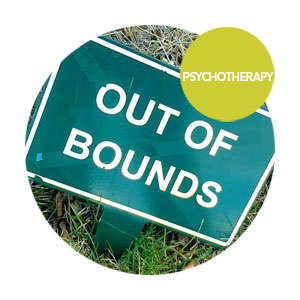PSYCHOTHERAPY
Listen to the audio version of this article:
Many people who struggle with addiction have poor boundaries to begin with or lose a sense of their boundaries amidst their addiction. As boundaries become eroded, it becomes more difficult to trust other people. As trust becomes less and less, a sense of closeness in your life disappears and you feel alone. Your addicted self loves when you’re alone.
Boundaries Help with Emotional Safety
Boundaries are the stated and implied limits that we use as people to navigate the world and our relationships. They help us stay safe. As anyone who either has children or has some experience with kids knows, kids will often fight boundaries at first (i.e. bending the rules or testing limits) but eventually they feel emotionally safer if they understand what the boundaries are. The converse is also true.
If a parent has poor emotional boundaries and seems to be constantly changing the rules and expectations in the home, it comes across as chaotic and confusing to a child. This leads to anxiety and distrust. You may have experienced that yourself if you grew up in a household with emotional chaos, poor boundaries, and a general lack of emotional safety.
Try to think back how these things were handled in your family growing up. If there were real problems with boundaries, that way of living served as your template for relationships as you grew up. It is always possible to learn about boundaries and to approach things differently.
Evading Boundaries
We understand the boundary present in a speed limit sign. We can break that boundary of our own choosing but then will need to face a consequence if we’re caught speeding. Understanding the legal system as it represents a boundary is a good benchmark for this topic. It also connects the breaking of a boundary with an understood consequence.
Addiction distorts the brain in such a way that the person feels that either the rule doesn’t specifically apply to them, or more likely, they can talk or convince their way out of the consequence. A classic example of this is with patients who have to submit a urine drug screen to social services for child custody issues but decided to use drugs over the weekend. There can be an internal voice telling yourself such phrases as:
- “Go ahead and use, I bet they won’t ask you this week to drop a UA”
- “My probation officer is cool, she won’t mind”
- “I gotta use…I’ll figure out the UA later”
Emotional Boundaries and D.E.A. Communication
Emotional and relational boundaries become much more abstract as compared to the legal system. These involve the ongoing compromise between “my needs” and “your needs.” People with poor boundaries have a hard time balancing this such that they only really emphasize their own needs or pay too much attention to the other person’s needs. Balance is key!
An example of an emotional boundary is being able to state what you need or prefer, even if your partner prefers something else. This could be as basic as deciding where to grab dinner. A person with poor boundaries will state what they would like to eat, listen to their partner preferring a different food, and then quickly submitting to the wishes of the partner.
It is healthy to state emotional boundaries around topics of conversation. If you’re partner or family member wants to talk about your addiction and seems to blame you too much, a good boundary would be saying:
- “I get upset when we talk about this and I feel attacked. We need to talk in a different way so it feels better.”
Another example would be when you are making efforts to quit alcohol and your partner keeps going out with friends and coming home drunk. You could set a boundary by saying:
- “You know I’m working my recovery and trying to change. When you come home drunk, I feel triggered and really upset. I need you to respect our space together.”
Read again these two boundary statements and look for the common words used. Phrases that use the word “I feel” and “I need” are at the core of good boundaries. A good stepwise skill to put this into practice is the D. E. A. skill:
- Describe: “When this happened…” (Describe the event)
- Express: “I felt…” (State an uncomfortable emotion you felt such as frustrated, disappointed, attacked, or afraid)
- Assert: “I need…” (Assert a way to make things better going forward)
It is common for this form of communication to feel foreign or awkward at first. These skills take practice. This also requires patience in a household. If you start communicating in a more healthy way and holding your boundaries, your partner may become anxious, annoyed, or angry because it’s different than the way things have been. People often resist change, so be mindful if your family system is resisting your assertiveness. Stay strong with this and don’t give up! Even though the change can be difficult or uneasy at times, your relationships will be so much healthier.




